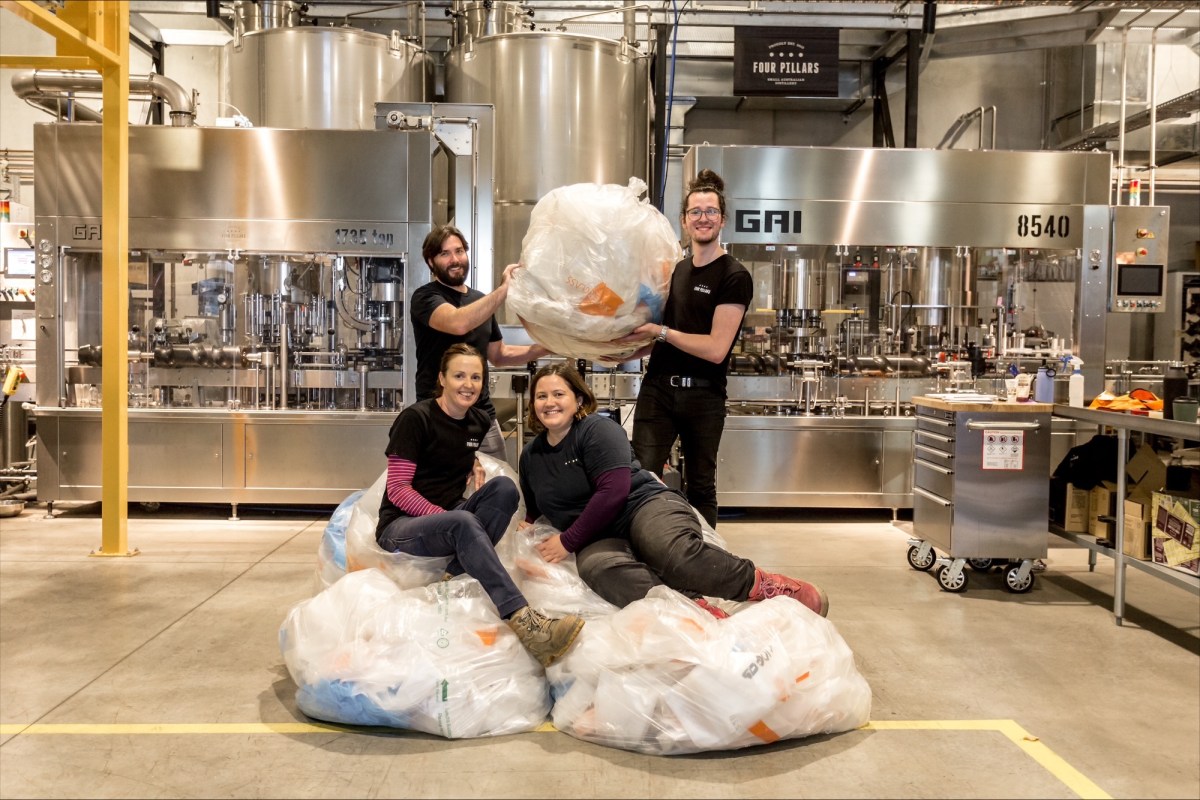As part of its ongoing sustainability journey, Four Pillars has transitioned to using Biogone, a landfill biodegradable plastic.
Nicole Poole, bottling manager at Four Pillars, explained that the distillery was seeking to its environmental impact by finding an alternative to non-biodegradable plastic.
“Sustainability plays a large role within Four Pillars. This is how I initially began looking for environmentally responsible plastic alternatives that would have the strength and quality to be use daily while helping us meet our sustainability goals. We wanted the practical durability with an eco-conscious edge. That’s a combination which had been eluding us until we found Biogone,” said Poole.
For Michelle Hall, Director of Operations, this was an important change for Four Pillars.
“We attained Carbon Neutral accreditation in 2022 which is for the business and our products. In our mind, this is very much the starting point of our sustainability plan. Having had our carbon emissions audited independently, we now have a better understanding of how we can improve. We are also on the cusp of launching our sustainability plan which will hold us to account and encourage continual improvement,” Hall commented.
When Four Pillars started using Biogone products in June 2022, it was important that the new products were effective as well as being environmentally friendly.
“I was a bit hesitant to start with, as we were worried the quality wouldn’t hold up to what we had used in the past, seeing that each pallet of Four Pillars Gin has a weight of one tonne. We needed to keep those pallets wrapped tightly and secured for transporting all around the world. That was a significant ask. The first week using Biogone, which included the landfill-biodegradable machine stretch wrap, pallet strapping and pallet caps, the Four Pillars team couldn’t tell the difference, as it performed to the same high standards as the conventional plastics we had previously used,” Poole explained.
In fact, some Biogone products performed better than conventional plastics, as Poole saw with the bin liners.
“We fill them, crush them into cubes, then move them with a forklift. The conventional bin liners we previously used would rip easily and create additional mess and we would end up using two liners to hold the rubbish,” she noted.
Hall emphasised that these seemingly small changes do make an impact on the environmental footprint of a business.
“Being sustainable isn’t just about the larger solar panels, our water-cooling veil or our glass crushing machine. We look at each area of the building to see where we can reduce our environmental impact, and sometimes, it’s the smaller everyday used items that may get overlooked such as bin liners, or our individual sugar sachets which we swapped from plastic wrap to paper wrap,” she said.
Poole echoed the sentiment, saying the Four Pillars is proud of the steps they are taking towards sustainability.
“Four Pillars has deliberately taken a leadership approach within the Australian distilling industry. This includes a number of areas from compliance to sustainability. We want others to reset the bar in order to build a brilliant industry,” she said.
Sustainability Tips
Poole provided three useful tips for businesses seeking to incorporate sustainable products and practices.
- Start with sustainability
“It is so much easier to start with sustainability in mind rather than retro fit it into a business,” she advised.
- Make it an investment
“Also, look at it as a long-term investment in the business. Costs might be higher but in the long run it will be beneficial,” she added.
- Involve the team
“Engage the team by making the entire team a part of the sustainability plan and have them challenge the business to be better,” Poole concluded.

